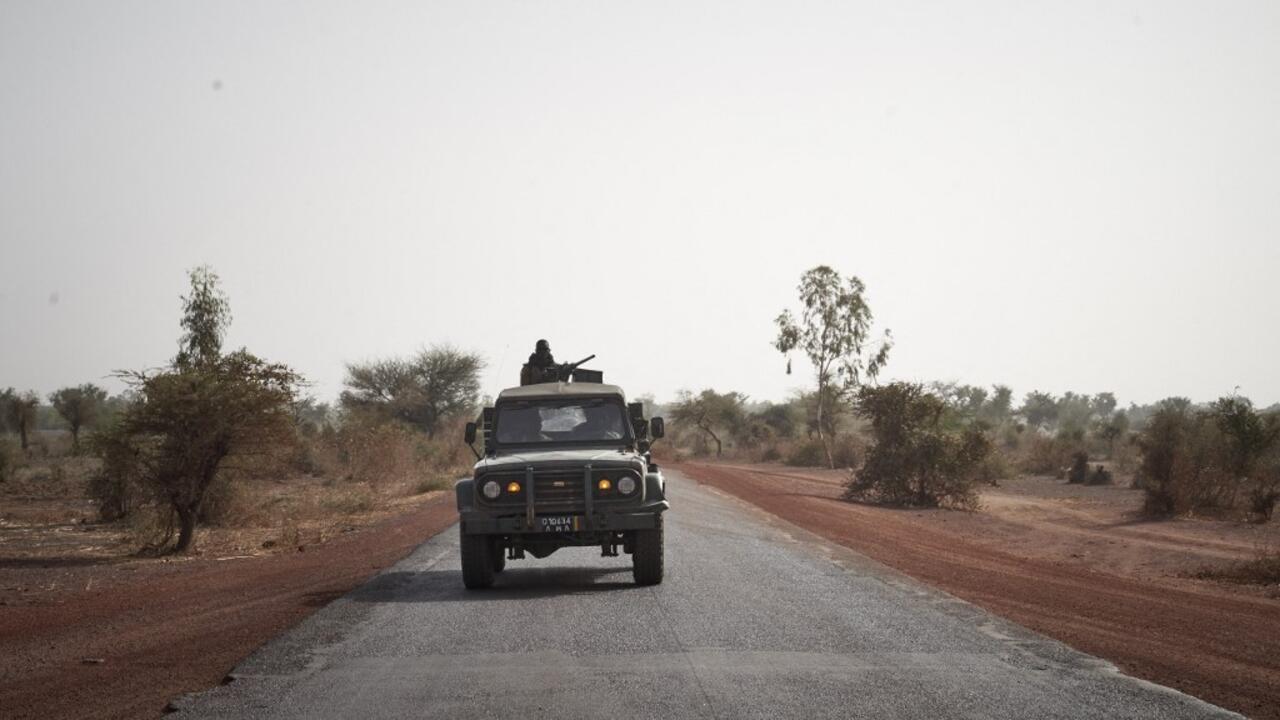Mali: multiplication of local agreements between populations and jihadists
A Malian army patrol on the road between Mopti and Djenné, in central Mali, on February 28, 2020 (illustrative image) AFP - MICHELE CATTANI
Text by: David Baché
2 mins
The inhabitants of Boni, in the Mopti region, negotiated an agreement earlier this week with the jihadists of Katiba Serma, a member of Jnim, the Support Group for Islam and Muslims, linked to al-Qaeda.
This agreement made it possible to put an end to the blockade that the Katiba Serma had imposed on the inhabitants since May 25.
In recent months, agreements of this type have multiplied, raising and restating the question of the involvement of the Malian authorities and the national strategy on this subject.
Advertising
Read more
Boni is just the latest deal of its kind.
In March last year, a direct agreement between jihadists and residents was reached in Farabougou, Ségou region.
It had not lasted more than a few months, but it was the first time that a pact had been sealed directly with a jihadist group, and not with community leaders acting as mediators.
Since then, and especially in recent weeks, the model has multiplied.
Boubacar Ba, a Malian researcher who closely follows all these initiatives, is director of the Center for Analysis on Governance and Security in the Sahel.
In the Djenné area, between April-May and now, there have been about twenty agreements.
The objective is to reduce group violence because there is a systematic occupation of the land.
People are unable at all to cultivate and move around freely.
So, after several years, the populations realized that it was necessary to negotiate in order to live a little in peace.
A peace that is expensive: depending on the case, the inhabitants agree to pay a tax to the jihadists, to force women to wear the veil, or even to no longer maintain ties with the Malian army.
These local agreements raise the question of national sovereignty.
"
The national authorities do not have control of all these agreements and are not directly involved,
" analyzes Boubacar Ba
.
But the authorities let it go while waiting for better, because there is no national dialogue strategy today.
It is true that it periodically solves the problems, but it excludes the State.
»
The national stabilization strategy for central Mali, approved last August 24 by the Council of Ministers, does not address this subject at any time.
Newsletter
Receive all the international news directly in your mailbox
I subscribe
Follow all the international news by downloading the RFI application
google-play-badge_EN
mali

